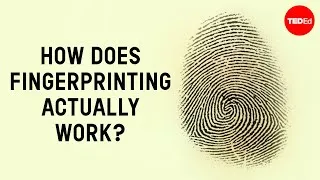请双击下面的英文字幕来播放视频。
翻译人员:
校对人员: Yanyan Hong
00:07
On a December night in 1910,
the exiled former leader of Honduras,
0
7056
5784
1910年12月的一个夜晚,
流亡中的前任洪都拉斯领导,
00:12
Manuel Bonilla, boarded
a borrowed yacht in New Orleans.
1
12840
4628
曼努埃尔·博尼拉(Manuel Bonilla)
与一群全副武装的共犯,
00:17
With a group of heavily armed accomplices,
2
17468
2460
在新奥尔良登上一艘借来的游艇。
00:19
he set sail for Honduras in hopes
of reclaiming power
3
19928
4029
他启航前往洪都拉斯,
00:23
by whatever means necessary.
4
23957
2940
希望用任何必要手段夺回权力。
00:26
Bonilla had a powerful backer,
5
26897
2357
博尼拉有强大的后盾,
00:29
the future leader
of a notorious organization
6
29254
3170
臭名昭著团体的后任头目,
00:32
known throughout Latin America
as El Pulpo, or "the Octopus,"
7
32424
5817
因为他们涉及范围之广,
00:38
for its long reach.
8
38241
1770
在拉丁美洲被称为El Pulpo, 也叫“章鱼”,
臭名昭著的El Pulpo是一家美国公司,
00:40
The infamous El Pulpo
was a U.S. corporation
9
40011
3533
00:43
trafficking in, of all things,
bananas.
10
43544
4000
专门走私——香蕉。
00:47
It was officially known
as United Fruit Company—
11
47544
3540
在今天,他们被正式命名为
“United Fruit Company(联合水果公司)”
00:51
or Chiquita Brands International today.
12
51084
4261
或 “Chiquita Brands International”。
00:55
First cultivated in Southeast Asia
thousands of years ago,
13
55345
3800
数千年前,香蕉在东南亚首次种植,
00:59
bananas reached the Americas
in the early 1500s,
14
59145
3690
香蕉在 1500 年代早期到达美洲,
01:02
where enslaved Africans cultivated
them in plots alongside sugar plantations.
15
62835
6000
被奴役的非洲人在糖种植园旁
用块地耕种香蕉。
01:08
There were many different bananas,
16
68835
1740
有许多不同的香蕉,
01:10
most of which looked nothing like
the bananas in supermarket aisles today.
17
70575
5381
大多数不像今天超市里的香蕉。
01:15
In the 1800s, captains
from New Orleans and New England
18
75956
4040
在1800年代,
纽奥良和心英格兰从的船长们
01:19
ventured to the Caribbean in search
of coconuts and other goods.
19
79996
4338
冒险岛加勒比海
去寻找椰子和其他货物。
01:24
They began to experiment with bananas,
purchasing one kind,
20
84334
3790
他们开始用香蕉做实验,
向加勒比海牙买加、古巴
和洪都拉斯的非裔农民
01:28
called Gros Michel, from Afro-Caribbean
farmers in Jamaica, Cuba, and Honduras.
21
88124
6717
买一种叫“大米歇尔”的香蕉,
01:34
Gros Michel bananas produced large bunches
of relatively thick-skinned fruit—
22
94841
5335
“大米歇尔”香蕉束大而皮厚,
01:40
ideal for shipping.
23
100176
1903
适合船运。
01:42
By the end of the 1800s,
bananas were a hit in the US.
24
102079
5233
到19世纪末, 香蕉在美国很流行,
01:47
They were affordable,
available year-round,
25
107312
2980
香蕉价格便宜,
全年有售,
01:50
and endorsed by medical doctors.
26
110292
2870
得到医生的认可。
01:53
As bananas became big business,
27
113162
2440
随着香蕉成为大生意,
01:55
U.S. fruit companies wanted
to grow their own bananas.
28
115602
3430
美国水果公司想自己种香蕉。
01:59
In order to secure access to land,
29
119032
2550
为了确保进入陆地
02:01
banana moguls lobbied and bribed
government officials in Central America,
30
121582
4480
香蕉公司高管游说并贿赂
中美洲政府官员,
02:06
and even funded coups to ensure
they had allies in power.
31
126062
4212
甚至资助政变来确保安全,
还有盟国当权。
02:10
In Honduras, Manuel Bonilla repaid
the banana man
32
130274
3768
在洪都拉斯,曼努埃尔·博尼拉报答
02:14
who had financed his return to power
with land concessions.
33
134042
4540
那个以土地出让金资助他
东山再起的香蕉人。
02:18
By the 1930s, one company dominated
the region: United Fruit,
34
138582
5406
到20世纪30年代
联合水果公司主宰了这个地区,
02:23
who owned over 40% of Guatemala’s
arable land at one point.
35
143988
5230
该公司曾有一段时间拥有
危地马拉40%以上的耕地。
02:29
They cleared rainforest in Costa Rica,
Colombia, Guatemala, Honduras,
36
149218
5325
他们皆伐了雨林在哥斯达黎加、
哥伦比亚、危地马拉、洪都拉斯,
02:34
and Panama to build plantations,
37
154543
2730
还有巴拿马以建种植园,
02:37
along with railroads, ports,
and towns to house workers.
38
157273
4264
连同铁路、港口,
还有城市为收容工人们。
02:41
Lured by relatively high-paying jobs,
people migrated to banana zones.
39
161537
5088
受相对高薪工作的吸引,
人们移居到香蕉区。
02:46
From Guatemala to Colombia,
40
166625
2010
从危地马拉到哥伦比亚,
02:48
United Fruit’s plantations grew
exclusively Gros Michel bananas.
41
168635
5200
联合水果公司的种植园
只种植了“大米歇尔”香蕉。
02:53
These densely packed farms
had little biological diversity,
42
173835
4000
这些拥挤不堪的农场
几乎没有生物多样性,
02:57
making them ripe for disease epidemics.
43
177835
2790
因此它们成为疾病传染的温床。
03:00
The infrastructure connecting
these vulnerable farms
44
180625
3000
连接这些脆弱农场的基础设施
03:03
could quickly spread disease:
45
183625
2450
可能迅速传播疾病:
03:06
pathogens could hitch a ride from one
farm to another on workers’ boots,
46
186075
4000
病菌会骑着工人的靴子、
03:10
railroad cars, and steamships.
47
190075
2970
火车和轮船,
从一个农场传到另一个农场。
03:13
That’s exactly what happened in the 1910s,
48
193045
3020
这正是1910年代发生的事情,
03:16
when a fungus began to level
Gros Michel banana plantations,
49
196065
4095
一种菌类开始使“大米歇尔”
香蕉种植园夷为平地,
03:20
first in Panama, and later throughout
Central America,
50
200160
3740
先在巴拿马,后来在中美洲,
03:23
spreading quickly via the same system that
had enabled big profits and cheap bananas.
51
203900
6838
这种菌类通过同样的系统迅速传播
这些系统使人们能够
获得巨额利润和廉价香蕉。
03:30
In a race against “Panama Disease,”
52
210738
2970
在与"巴拿马病"的赛跑中,
03:33
banana companies abandoned
infected plantations
53
213708
2981
香蕉公司放弃了病株的种植园
03:36
in Costa Rica, Honduras, and Guatemala,
54
216689
3520
在哥斯达黎加、洪都拉斯和危地马拉,
03:40
leaving thousands of farmers and workers
jobless.
55
220209
3903
这导致成千上万的农民和工人失业。
03:44
The companies then felled
extensive tracts of rainforests
56
224112
4000
这些公司随后砍伐了大片雨林
03:48
in order to establish new plantations.
57
228112
3220
以建立新的种植园。
03:51
After World War II,
58
231332
1740
第二次世界大战后,
03:53
the dictatorships with which United Fruit
had partnered in Guatemala and Honduras
59
233072
4738
曾经与联合水果公司合作的
危地马拉和洪都拉斯的专制政权
03:57
yielded to democratically elected
governments that called for land reform.
60
237810
4929
屈服于民选政府,后者呼吁进行土地改革。
04:02
In Guatemala, President Jacobo Arbenz
tried to buy back land from United Fruit
61
242739
5993
在危地马拉,雅各布·阿本茨
总统试图从联合水果公司
04:08
and redistribute it to landless farmers.
62
248732
3050
手中买回土地并重新分配给无土地农民。
04:11
The Arbenz government offered to pay
a price based on tax records—
63
251782
4213
阿本茨政府提出要根据税收记录支付价格——
04:15
where United Fruit had underreported
the value of the land.
64
255995
4292
联合水果公司低估了这块土地的价值了。
04:20
El Pulpo was not happy.
65
260287
2770
El Pulpo不悦。
04:23
The company launched propaganda
campaigns against Arbenz
66
263057
3690
该公司开展了反对阿本茨的宣传活动,
04:26
and called on its deep connections
in the US Government for help.
67
266747
4789
并呼吁其在美国政府的深厚关系给予帮助。
04:31
Citing fears of communism,
the CIA orchestrated the overthrow
68
271536
4800
1954年,中央情报局利用对共产主义的恐惧,
04:36
of the democratically elected
Arbenz in 1954.
69
276336
4634
策划了推翻民选的阿本茨的阴谋。
04:40
That same year in Honduras, thousands
of United Fruit workers went on strike
70
280970
5221
同年,在洪都拉斯,
数千名联合水果业工人举行罢工,
04:46
until the company agreed to recognize
a new labor union.
71
286191
4708
直到公司同意承认新的工会。
04:50
With the political and economic costs
of running from Panama Disease escalating,
72
290899
5631
随着从“巴拿马病”逃出的
政治和经济成本不断上升,
04:56
United Fruit finally switched
from Gros Michel
73
296530
3300
联合水果最终从“大米歇尔”改变过来
04:59
to Panama disease-resistant Cavendish
bananas in the early 1960s.
74
299830
5990
20世纪60年代早期,
巴拿马病的抗病毒“卡文迪什”香蕉。
05:05
Today, bananas are no longer
as economically vital in Central America,
75
305820
4699
如今,中美洲的香蕉
在经济上已不再那么重要,
05:10
and United Fruit Company,
rechristened Chiquita,
76
310519
3240
联合水果公司,又称奇基塔,
05:13
has lost its stranglehold
on Latin American politics.
77
313759
4312
对拉丁美洲政治失去了控制。
05:18
But the modern banana industry
isn’t without problems.
78
318071
3400
但现代香蕉业并非没有问题。
05:21
Cavendish bananas require frequent
applications of pesticides
79
321471
4000
“卡文迪什”香蕉需要经常使用
05:25
that create hazards for farmworkers
and ecosystems.
80
325471
3620
对农场工人和生态系统造成危害的杀虫剂。
05:29
And though they’re resistant
to the particular pathogen
81
329091
2730
虽然它们对影响“大米歇尔”香蕉的
05:31
that affected Gros Michel bananas,
82
331821
2160
病原体有抗药性,
05:33
Cavendish farms
also lack biological diversity,
83
333981
3780
“卡文迪什”农场也缺乏生物多样性,
05:37
leaving the banana trade
ripe for another pandemic.
84
337761
4220
这使得香蕉贸易容易
受到另一次全球疫情的影响。
New videos
关于本网站
这个网站将向你介绍对学习英语有用的YouTube视频。你将看到来自世界各地的一流教师教授的英语课程。双击每个视频页面上显示的英文字幕,即可从那里播放视频。字幕会随着视频的播放而同步滚动。如果你有任何意见或要求,请使用此联系表与我们联系。







